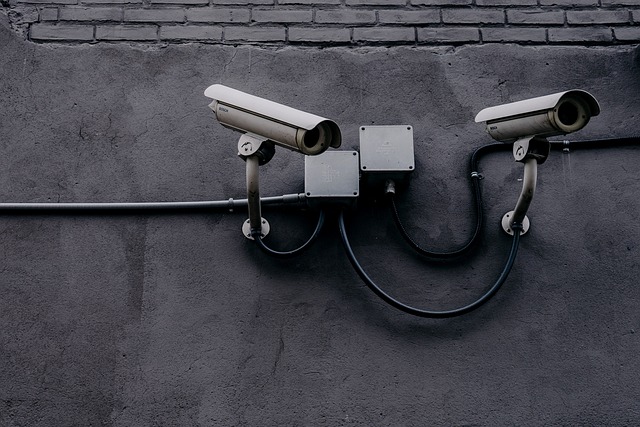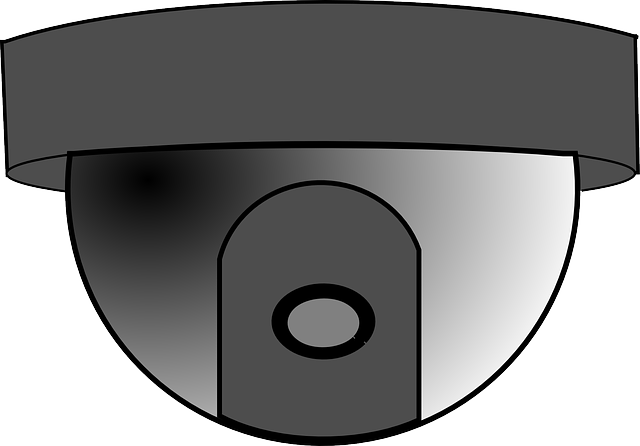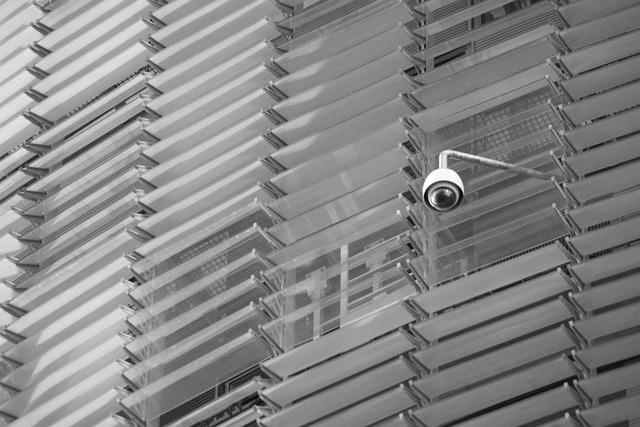CCTV systems significantly enhance modern security strategies by providing continuous surveillance, deterring criminal activity, and capturing high-resolution evidence. These systems offer real-time monitoring, with capabilities extended by motion detection, alarm integration, and cloud storage for indefinite footage preservation. The selection of a CCTV system must be tailored to individual property needs, considering factors like environmental conditions, potential risks, and desired camera features such as night vision and remote access. High-definition cameras equipped with advanced infrared technology ensure round-the-clock monitoring, while the integration of artificial intelligence can proactively detect threats. Strategic placement of cameras is crucial for effective surveillance and respecting privacy, requiring attention to lighting conditions and potential visual blockers. Cybersecurity measures are essential for maintaining the integrity of CCTV systems, with regular maintenance and prompt software updates recommended. Incident response protocols must be established for both security enhancement and legal compliance. The article highlights the importance of understanding the evolving role of CCTV, noting its advanced features like AI analysis for unusual activity, high-definition imaging in various lighting conditions, and motion detection algorithms designed to reduce false alarms. Additionally, it stresses the necessity of adhering to legal and ethical frameworks, such as GDPR and U.S. state laws, to ensure privacy rights are respected while leveraging CCTV for security. Organizations must operate within these boundaries to maintain lawful and ethically responsible surveillance practices.
When it comes to safeguarding one’s property or ensuring personal safety, CCTV emerges as a pivotal tool in modern surveillance. This article delves into the critical role of CCTV in maintaining peace of mind, from selecting an optimal system tailored to individual needs to navigating advanced features that enhance monitoring capabilities. We’ll explore best practices for installation and operation, technological advancements, and the legal framework surrounding their use. Understanding these aspects is key to harnessing the benefits of CCTV in a manner that respects privacy and adheres to ethical standards.
- Understanding the Role of CCTV in Maintaining Peace of Mind
- Selecting the Right CCTV System for Your Needs
- Best Practices for Installing and Monitoring CCTV Cameras
- Leveraging Technology: Advanced Features in Modern CCTV Surveillance Systems
- Legal Considerations and Ethical Implications of CCTV Surveillance
Understanding the Role of CCTV in Maintaining Peace of Mind

CCTV systems play a pivotal role in contemporary security frameworks, offering continuous surveillance that deters criminal activity and provides critical evidence should an incident occur. With advanced technology capable of capturing high-resolution images, CCTV serves as a silent guardian, monitoring environments from retail stores to residential neighbourhoods with unobtrusive vigilance. The presence of these cameras reassures property owners and tenants alike, fostering a sense of security that is paramount in today’s dynamic global landscape where safety concerns are ever-present.
In addition to acting as a deterrent against theft, vandalism, and other forms of malicious intent, CCTV systems also offer the added benefit of remote monitoring. This allows for real-time situational awareness, enabling security personnel or homeowners to respond swiftly to any suspicious activities detected on camera. The integration of motion detection and alarm systems further enhances their efficacy, ensuring that any unusual movement triggers immediate attention, thus reinforcing the integrity and safety of the monitored spaces. With the advent of cloud-based storage solutions, footage is not only preserved but also accessible from multiple devices, providing a comprehensive surveillance solution that can help maintain peace of mind for individuals and businesses alike.
Selecting the Right CCTV System for Your Needs

In today’s increasingly complex world, selecting the right CCTV system for your property is paramount for maintaining peace of mind and ensuring the safety of your assets. When considering a CCTV surveillance system, it’s crucial to assess the unique needs of your environment, whether it be residential or commercial. Factors such as the areas you need to monitor, potential risks, and desired camera features—like motion detection or night vision capabilities—should guide your choice. High-definition cameras with advanced infrared technology will provide clear footage day and night, ensuring that no detail goes unnoticed. Additionally, opting for a system with remote access allows you to monitor your premises from any location, providing an extra layer of security.
Advancements in CCTV technology have made it easier than ever to find a surveillance solution tailored to your specific requirements. From wired to wireless options, and from basic models to sophisticated systems integrating artificial intelligence for real-time threat detection, there’s a system out there for every budget and necessity. It’s also wise to consider the compatibility of the CCTV system with other smart home devices or security measures you may have in place, creating a cohesive network that enhances your overall surveillance strategy. With careful planning and an understanding of the latest advancements in CCTV technology, you can select a system that not only meets your needs but also offers unparalleled peace of mind.
Best Practices for Installing and Monitoring CCTV Cameras

When installing CCTV cameras for optimal surveillance and peace of mind, it is imperative to consider strategic placement to capture clear visuals without intruding on privacy. Cameras should be installed at various vantage points, ensuring full coverage of the area while avoiding blind spots. A well-thought-out plan includes positioning cameras at appropriate heights and angles, considering environmental factors such as lighting conditions and potential obstructions that could obstruct visibility. Additionally, selecting high-quality equipment with adequate resolution and night vision capabilities is essential for capturing crisp, detailed footage around the clock.
Monitoring CCTV systems effectively requires a robust and secure infrastructure. It’s crucial to invest in reliable software that facilitates real-time monitoring and immediate access to footage from any authorized device. Regular maintenance checks should be scheduled to ensure that all hardware components are functioning correctly, and software updates should be applied promptly to protect against cyber threats. Furthermore, establishing clear protocols for responding to incidents detected by the cameras is vital for both enhancing security and legal compliance. Implementing these best practices not only improves surveillance capabilities but also contributes to maintaining peace of mind for property owners and occupants.
Leveraging Technology: Advanced Features in Modern CCTV Surveillance Systems

In today’s security landscape, modern CCTV systems are equipped with a suite of advanced features that enhance their effectiveness in monitoring and protecting properties. These sophisticated surveillance solutions integrate high-definition cameras capable of capturing crisp, clear images even in low light conditions, ensuring that every detail is visible for analysis. Additionally, motion detection algorithms have been refined to minimize false alarms while accurately identifying genuine security threats, enabling property owners to respond swiftly and appropriately. The integration of artificial intelligence within these systems allows for real-time analysis and can alert authorities or initiate predefined actions automatically upon detecting unusual activity.
Moreover, the advent of cloud storage and networking capabilities has revolutionized how CCTV footage is managed and accessed. Surveillance footage from various cameras can be seamlessly recorded and stored in the cloud, providing a reliable and scalable solution for long-term monitoring and evidence retention. This remote access feature empowers users to monitor their premises from anywhere in the world, granting them peace of mind whether they are at home or traveling abroad. The combination of these technologies in modern CCTV systems not only deters potential intruders but also acts as a deterrent against criminal activity, fostering a safer environment for businesses and households alike.
Legal Considerations and Ethical Implications of CCTV Surveillance

In deploying CCTV systems, it is imperative to navigate the complex legal landscape that governs surveillance. Laws such as the General Data Protection Regulation (GDPR) in Europe and various state-specific statutes in the United States set clear guidelines on how footage can be recorded, stored, and accessed. These regulations are designed to protect individuals’ privacy rights while allowing businesses and communities to benefit from CCTV’s deterrent effects and post-incident investigative capabilities. It is crucial for organizations to understand these legal requirements to avoid potential legal repercussions and maintain the trust of those being monitored.
Beyond legality, ethical considerations extend beyond mere compliance with existing laws. The deployment of CCTV surveillance raises questions about the right to privacy and the extent to which an individual’s right can be compromised for the collective good. Ethical implications include the potential for abuse, the need for transparency in how footage is used, and the importance of limiting surveillance to its intended purpose of ensuring safety and security. Organizations must balance these ethical concerns with the societal benefits that CCTV offers, ensuring that their surveillance practices are both lawful and morally justifiable.
In conclusion, CCTV serves as a robust tool for safeguarding one’s property and ensuring peace of mind. By carefully selecting a system tailored to your specific requirements, you can benefit from the advanced features modern surveillance systems offer. The strategic installation and diligent monitoring of these cameras are pivotal in their effectiveness. However, it’s imperative to navigate the legal landscape and consider the ethical dimensions of CCTV surveillance. With a comprehensive understanding of these elements, individuals and businesses alike can harness CCTV as a beneficial security measure, enhancing safety while respecting privacy boundaries.
